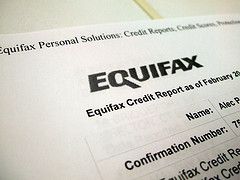How Bad Credit Keeps People Unemployable, And Why It Shouldn’t
Here’s the thing with credit histories: it’s easy to fall behind on your bills when you don’t have a job. The reduced income (or total lack of income) really works against you. While half of all companies report that they check the credit reports of at least some prospective employees, there isn’t really any solid evidence that correlates bad credit with being a bad employee.
It doesn’t make a whole lot of sense. Intuitively, it feels like it should: someone who has paid their bills responsibly for the last decade or so would make a dependable, responsible employee, right? Not necessarily: they may have parents who bail them out, a partner who supports them, or have just had the good fortune to never get sick while uninsured.
Yes, lenders look at credit reports when deciding whether or not to lend you money. That makes sense. It’s a factor when you’re looking for rental housing and applying for various types of insurance. Why employment, though? “Someone loses their job, so they can’t pay their bills — and now they can’t get a job because they couldn’t pay their bills because they lost a job?” a staff attorney for the National Consumer Law Center asked the New York Times rhetorically.
When you have to decide between a half-dozen equally qualified candidates, should you just go with the one who has missed the fewest payments on their bills? Researchers admit that the correlation isn’t really there. Credit reports are relatively cheap and easy to do as part of a background check, but it’s really a criminal background check that is more likely to flag potential thieves in the workplace.
As of this writing, pre-employment credit checks are now against the law in nine states: California, Colorado, Connecticut, Hawaii, Illinois, Maryland, Oregon, Vermont, and Washington state. Each state’s law has exceptions, of course, but it’s a start.
The Long Shadow of Bad Credit in a Job Search [New York Times]
Discredited [Demos]
Want more consumer news? Visit our parent organization, Consumer Reports, for the latest on scams, recalls, and other consumer issues.


